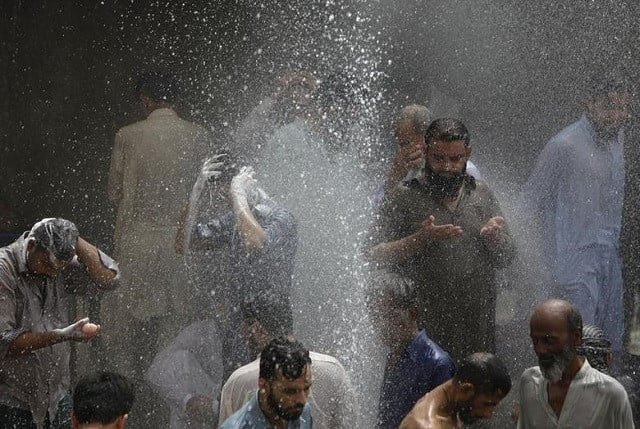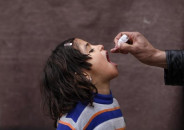Karachi set to sizzle between May 12 and 14
Maximum temperature might cross 40C with sea breeze being affected or completely halting

Karachi is expected to turn into a furnace for its residents between May 12 and 14 with the temperature expected to exceed 40 degrees Celsius during this period.
According to the Pakistan Meteorological Department’s (PMD) Early Warning Centre, the maximum temperature of Karachi might cross 40C during May 12 and 14 with sea breeze being affected or completely halting during the heat wave.
According to the Early Warning Centre, the heat wave over central and upper Sindh will intensify between May 11 and 12.
Dadu, Jacobabad, Larkana, Sukkur, Shikarpur, Khairpur, Ghotki, Naushahro Feroze might record between 46C and 48C during the day.
The heatwave can also affect lower Sindh districts including Hyderabad, Mirpurkhas, Badin and Umerkot with daytime temperatures likely to remain between 43C and 45C.
The public is advised to refrain from going out between 11am and 4pm when the heat wave is at its peak.
Also read: Heatwave alert for central, northern Sindh
The weather in Karachi remained hot and humid on Sunday, with the maximum temperature being recorded at 35C.
However, sea breeze ensured that its residents could put up with the heat.
Pakistan has made strides towards protecting public health from heat. In the summer of 2015, a heatwave engulfed much of central and northwest India and eastern Pakistan and was directly or indirectly responsible for several thousand deaths.
The event acted as a wake-up call and led to the development and implementation of the Heat Action Plan in Karachi and other parts of Pakistan.
Typical plans make sure the targeted intervention is a right fit and designed for the heat vulnerable population of a city.
It first identifies the heat hotspots of the city, locates the vulnerable populations in these pockets, and assesses the nature and status of their vulnerability to extreme heat.
Last month, Pakistan issued a heat warning after the hottest March in 61 years. The intense heave wave in the country shows no signs of abating.
Federal Minister for Climate Change Senator Sherry Rehman had called upon home departments, provincial disaster management authorities and provincial teams of PMD to take precautionary actions to manage the intense heatwave, which touched highs of 47C in parts of the country.
Also read: Heatwave to intensify next week
"The Ministry of Climate Change has issued an official warning in an advisory note addressed to the concerned organisations, with particular attention drawn towards the possible occurrence of glacial lake outburst floods and flash-floods in the KP and G-B regions,” a statement issued by her office read.
"South Asia, particularly India and Pakistan are faced with what has been a record-breaking heatwave. It started in early April and continues to leave the people gasping in whatever shade they find.”
Temperatures were predicted to rise by 6 to 8 degrees Celsius above average temperatures after the hottest March on record since 1961, she added.
More than a billion people are at risk of heat-related impacts in the region, scientists have warned, linking the early onset of an intense summer to climate change.
For the first time in decades, Pakistan had gone from winter to summer without the spring season, Sherry said.
The government has also told provincial disaster management authorities to prepare urgently for the risk of flash-flooding in northern mountainous provinces due to rapid glacial melting.
(With input from agencies)



















COMMENTS
Comments are moderated and generally will be posted if they are on-topic and not abusive.
For more information, please see our Comments FAQ